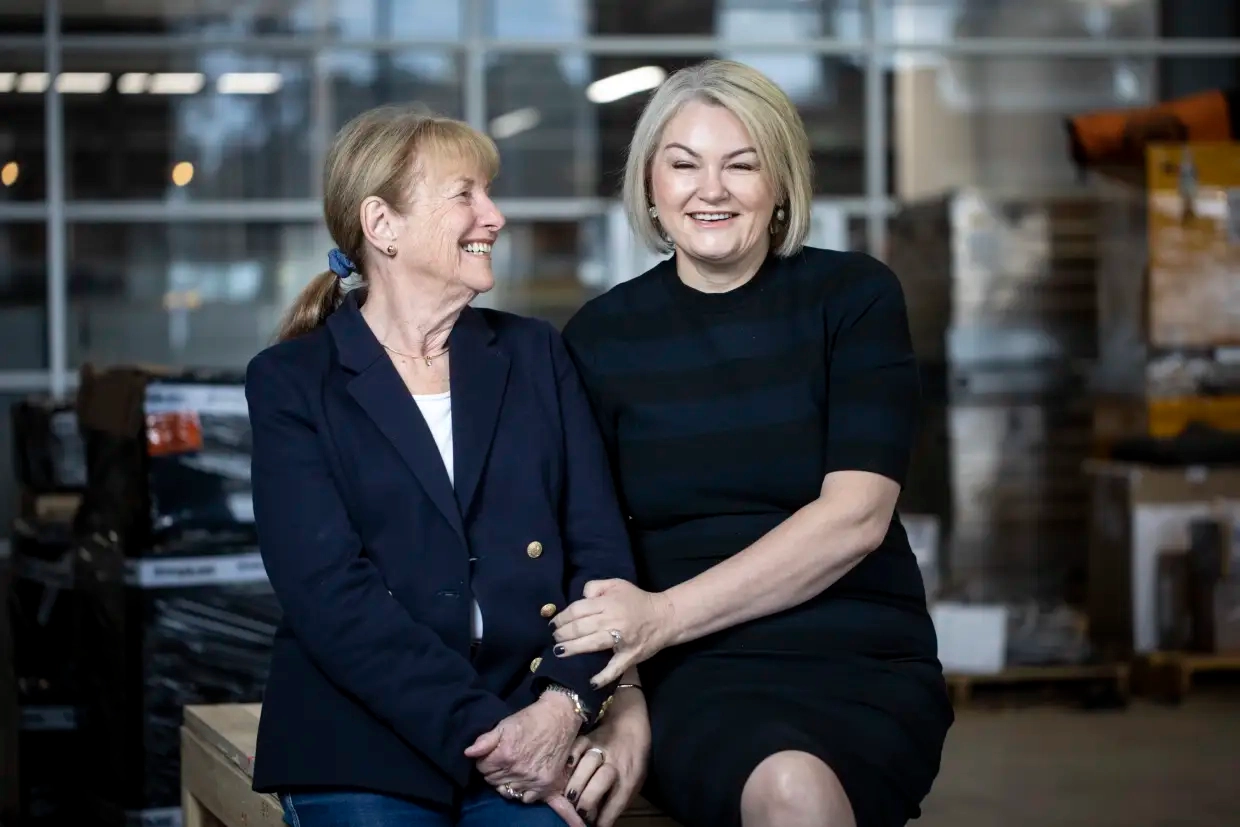Changing manual manufacturing: Operator augmentation with InspecVision’s GAV System
Read how InspecVision’s breakthrough system doesn’t replace workers—it gives them X-ray vision and a photographic memory.
Welcome to Headland Technology Client log in
Whether you’re after a machine, spare part, power tool, or need to book a service call Headland will help you find the right solution in a timely manner.
Fill out the form below and the relevant expert will be in touch with you shortly.
Read about our co-founder Di Kloe and Latinka Cubitt in The Australian Financial Review today asking more women to join the manufacturing industry and lead the way in changing the face of manufacturing in Australia.
Manufacturing leaders want more women to join the industry in the face of a growing skills crisis, promising workplaces with more inclusivity and progression opportunities than they may expect from historically male-dominated factories.
Data from the government-run Workplace Gender Equality Agency reveals that just 27 per cent of Australia’s 300,000-strong manufacturing workforce are female – well below the national average of 51 per cent – but industry heavyweights want to up that number to half within a decade.

And with technological advancements meaning the work is not as physically demanding as it used to be, they say there are more roles not just in the boardroom or office but on the factory floor.
“There’s no logical reason that women should not represent 50 per cent of the sector over the next decade or so,” president of the peak manufacturing body, the Australian Manufacturing Technology Institute Limited, Brigitte Stavar, said.
Ms Stavar has worked in manufacturing for 16 years and is leading schemes to improve gender diversity in the sector, such as a formal Women in Manufacturing mentoring program to help people see what work is available and then help progress them within those roles.
Headland Technology co-founder and AMTIL director Dianne Kloe added: “There is 43 per cent female representation in the new cabinet, we’d like to see the sector strive for something similar in the next decade.”
With unemployment at a 48-year low of 3.5 per cent and skills shortages stifling growth opportunities for businesses across a range of industries, adding more women to the talent pipeline would also be a welcome workforce boost for manufacturers.
The National Skills Commission estimated that there will be 23,100 new jobs in the sector that need to be filled to meet client demand by November 2026, on top of existing vacancies.
One of the first women to take on an executive role in manufacturing in Australia, Ms Kloe said sexism was common at the start of her career but that it was improving.
“The commanding heights of manufacturing in the 1980s was very much reflective of the whole sector, one dominated by men,” the former teacher said.
“That was a global phenomenon. When we [Ms Kloe and Headland co-founder and husband Peter] travelled to Japan for business, one of the partners we visited first assumed I was the secretary.
“They didn’t want to negotiate with me. I said ‘well you’re going to have to because I’m the co-owner of the business.’”
But she said that advanced manufacturing was “a great place to be” for women wanting to advance quickly in business, saying the sector was expanding and “the opportunities are there” for those who want them.
Catten Industries CEO Latinka Cubitt followed Ms Kloe’s path into manufacturing and also wants to see more progress towards gender equity.
“Regardless of the knowledge and qualifications held by women in the industry – in trade, engineering, design, administration – many males still prefer to speak to another male when making enquiries,” she warned.
“Change is slow, regardless how much everyone wants it to happen. Having said that, when you know your stuff, have the passion, determination and have a bit of a laugh, you will succeed every time.”
Whether you’re after a machine, spare part, power tool, or need to book a service call Headland will help you find the right solution in a timely manner.
Fill out the form below and the relevant expert will be in touch with you shortly.
